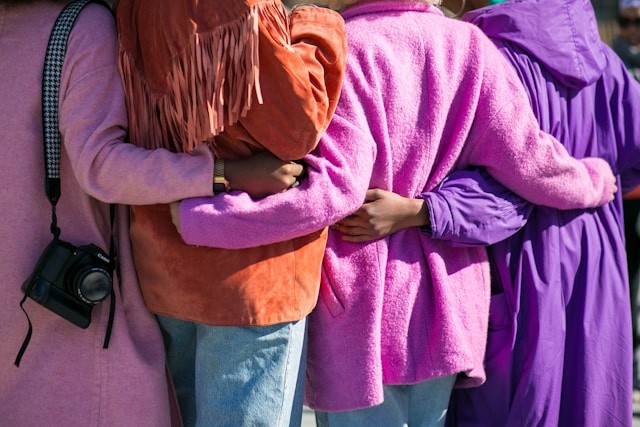Several states in the United States are debating a proposed law known as the 'Women's Bill of Rights.' The legislation aims to set legal definitions for 'man' and 'woman.' These definitions use biological and reproductive traits. The proposal has sparked controversy as it affects women's rights significantly. Additionally, it directly challenges transgender identity.
The contention arises from a specific language. Laws in states such as West Virginia, Iowa, and Georgia aim to legally define genders as tied to one's capabilities to produce, transport, and utilize gametes- eggs or sperm- for fertilization. While exceptions are cited for intersex individuals or those with genetic disorders, the bills essentially exclude gender identity and expression from their scope.

What Do These Bills Propose?
The legislative texts are a pivot towards strict biological terms. They define 'man,' 'woman,' 'girl,' 'boy,' 'mother,' 'father,' 'male,' and 'female.' These definitions stress reproductive systems rather than gender identity. The CDC sees gender and sex as different, acknowledging their complexity.
Proponents of the legislation, such as Iowa Governor Kim Reynolds, argue that recognizing only two biological sexes is a matter of preserving public data's safety, privacy, and accuracy. Their perspective holds that biological differences between men and women are not only inherent but foundational to the structure of society's various single-sex spaces.
What Is the Impact on the Transgender Community?
But what does the uprising of such legislation mean for transgender individuals? Many advocates and legal experts have voiced concerns, indicating a potential for these bills to disrupt the daily lives of transgender people starkly. Whether it's applying for an apartment, a loan, or engaging in any activity requiring ID, transgender individuals whose gender identity does not match their birth-assigned sex could face significant barriers.
The executive director of the National Center for Transgender Equality, Rodrigo Heng-Lehtinen, highlights the necessity of legal recognition matching one's gender identity and living experience to prevent encounters with harassment or discrimination. The bills' stance on limiting sex definitions could, as feared by advocates, isolate transgender individuals from specific protective discrimination laws and open the community up to rising physical violence.
ALSO READ: US Government Declares Only Real People Can Patent AI-assisted Inventions, Sets Ground Rules
How Could Single-Sex Facilities Be Affected?
One of the most tangible arenas where such legislation could have an impact is in the use of single-sex facilities. The bills aim to limit access to spaces like locker rooms, restrooms, and shelters by forcing transgender individuals out, set on the premise of biological sex. This is expected to present enforcement challenges and could lead to a surge in harassment incidents.
Further complexities surface with changes such as Georgia's move to eliminate 'sexual orientation and gender' from its hate crime legislation. This alteration, coming at a time when hate crimes against the LGBTQ community are noticeably increasing, raises alarm over the protection and safety of this vulnerable population.
Will Non-Transgender People Also Be Impacted?
The ripple effects of this legal approach do not end with the transgender community. Legal Director Shannon Minter of the National Center for Lesbian Rights warns that these potential laws could also influence how discrimination against women is perceived, as they hinge on women's identities on reproductive anatomy alone. This narrowed definition of sex threatens significant strides in the protection against gender stereotyping and sexual harassment.
Moreover, supporters argue that the legislation merely serves to clarify and codify sex definitions relevant to current discrimination laws and single-sex space precedents. Groups like the Independent Women's Voice assert that maintaining a clear line between 'sex' and 'gender' is crucial for upholding equal opportunities and safety for women.




